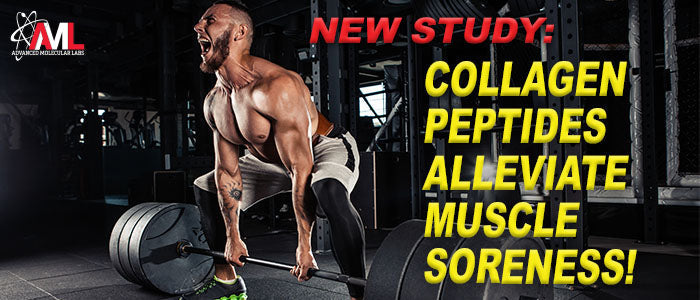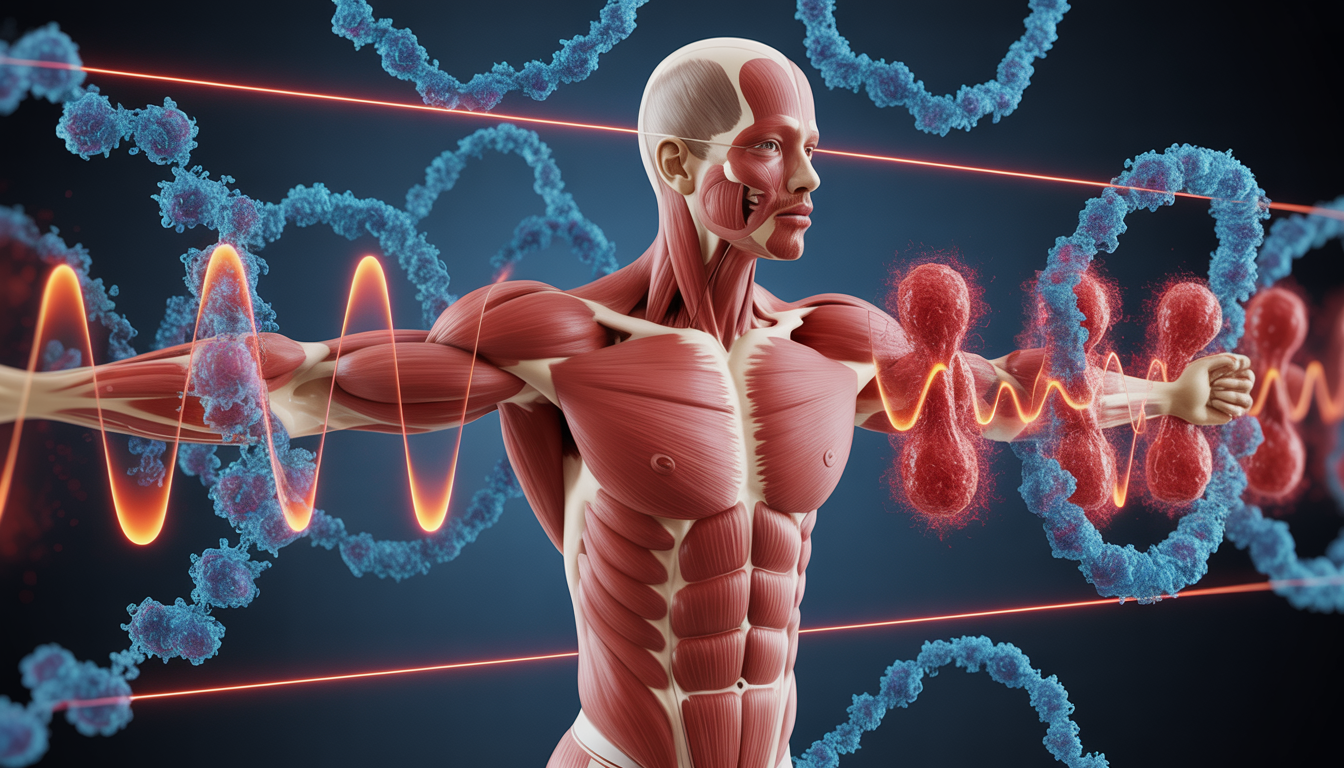


Collagen for Muscle Recovery: Post-Workout Benefits Guide
By Robert Schinetsky
Collagen for muscle Recovery
Just about everyone who has undertaken an intense exercise program has experienced muscle soreness and restricted movement due to exercise-induced aches. This is particularly common among novice trainees and those engaging in eccentric training, which creates more microtrauma in the muscle fibers.
Collagen for muscle recovery is gaining attention due to its potential benefits in alleviating muscle soreness. Adequate daily protein intake is a critical part of repairing damaged muscle fibers and reducing delayed-onset muscle soreness (DOMS). Other important lifestyle factors include consuming enough total calories, managing stress, performing an appropriate amount of training volume/intensity, and getting enough sleep.
Regarding protein, whey protein remains a popular choice among gym-goers due to widespread endorsements and a growing body of evidence supporting its effectiveness in meeting daily protein needs, thus aiding muscle recovery, growth, and performance enhancement.
Supplementing with branched-chain amino acids (BCAAs) has been promoted to help reduce muscle soreness, but the benefits are mixed. When individuals consume adequate daily protein, there isn’t much benefit to additional BCAA supplements. If you choose to supplement with BCAAs, opt for pure L-Leucine, which is the real workhorse of the BCAA family, stimulating protein synthesis and limiting protein breakdown. For these reasons, AML PostWorkout includes a research-backed 5g of L-Leucine.
New research indicates that collagen peptides, in addition to whey protein, may help reduce exercise-induced muscle soreness. This is not surprising, as collagen accounts for approximately 30% of the total protein in animal tissues, including muscle tissue.1
This isn’t all that surprising, as collagen accounts for ~30% of the total protein in animal tissues, including muscle tissue.
A study involving 20 middle-aged men (52.6 ± 5.8 years) who received 10 grams of collagen peptides per day or a placebo for 33 days showed significant results. The participants were not engaged in a regular exercise program but could have had previous training experience. After 28 days of collagen supplementation, they engaged in a 5-day examination, including a bodyweight squat protocol with 5 sets of 40 bodyweight squats. Individuals receiving the placebo experienced greater muscle soreness and fatigue following the squat training. Those supplementing with 10 grams of collagen peptides reported reduced muscle soreness and fatigue immediately after the squat protocol and enhanced muscle strength 48 hours post-exercise.

As expected, individuals receiving placebo experienced significantly greater muscle soreness and fatigue following the squat training program. Individuals supplementing daily with 10 grams of collagen peptides reduced muscle soreness and fatigue immediately after the squat protocol and enhanced muscle strength 48 hours post-exercise.1
Based on these results, researchers concluded that collagen supplements could alleviate exercise-induced muscle soreness and fatigue, potentially improving muscle strength and enabling exercise with greater ease to enhance performance.”1
Takeaway
Collagen and muscle recovery have become a focal point for many fitness enthusiasts. Collagen post workout is particularly beneficial for those looking to enhance recovery and joint health. But is collagen good post workout? The answer lies in its ability to support muscle and joint recovery, making it an excellent choice for athletes and fitness enthusiasts.
Advanced Molecular Labs Joint Cocktail™ includes 10 grams of hydrolyzed collagen peptides to support healthy joints and greater muscle recovery. In this way, AML Joint Cocktail™ could be considered an indirect muscle-building supplement, as the ability to train hard consistently hinges on joint health and effective recovery from intense exercise.
In addition to collagen peptides, AML Joint Cocktail™ also includes a complementary combination of nutrients, including UC-II collagen, ApresFlex, TurmiPure, MSM, and more, that aid recovery, reduce exercise-induced inflammation, and promote robust joint support.†
In fact, every serving of Joint Cocktail™ provides 17 grams of premium-quality ingredients. Most joint formulas on the market contain a mere 3-4 grams of active ingredients (at most).
Every serving of Joint Cocktail™ provides 17 grams of premium-quality ingredients, whereas most joint formulas on the market contain a mere 3-4 grams of active ingredients. If Joint Cocktail™ were in capsule form, you would need to consume over 20 capsules to get the same clinically researched dosages found in one serving of AML Joint Cocktail™. The powder form eliminates the hassle of consuming multiple capsules and provides quicker digestion and more efficient uptake.
Altogether, AML Joint Cocktail™ can be considered the best joint supplement for athletes of all levels, from novices to seasoned veterans.
†These statements have not been evaluated by the Food and Drug Administration. This product is not intended to diagnose, treat, cure, or prevent any disease.
©Published by Advanced Research Media, Inc. 2023
©Reprinted with permission from Advanced Research Media, Inc. 2023
Reference:
1. Kumiko Kuwaba, Masashi Kusubata, Yuki Taga, Hiroshi Igarashi, Koichi Nakazato & Kazunori Mizuno (2023). Dietary collagen peptides alleviate exercise-induced muscle soreness in healthy middle-aged males: a randomized double-blinded crossover clinical trial, Journal of the International Society of Sports Nutrition, 20:1, DOI: 10.1080/15502783.2023.2206392





